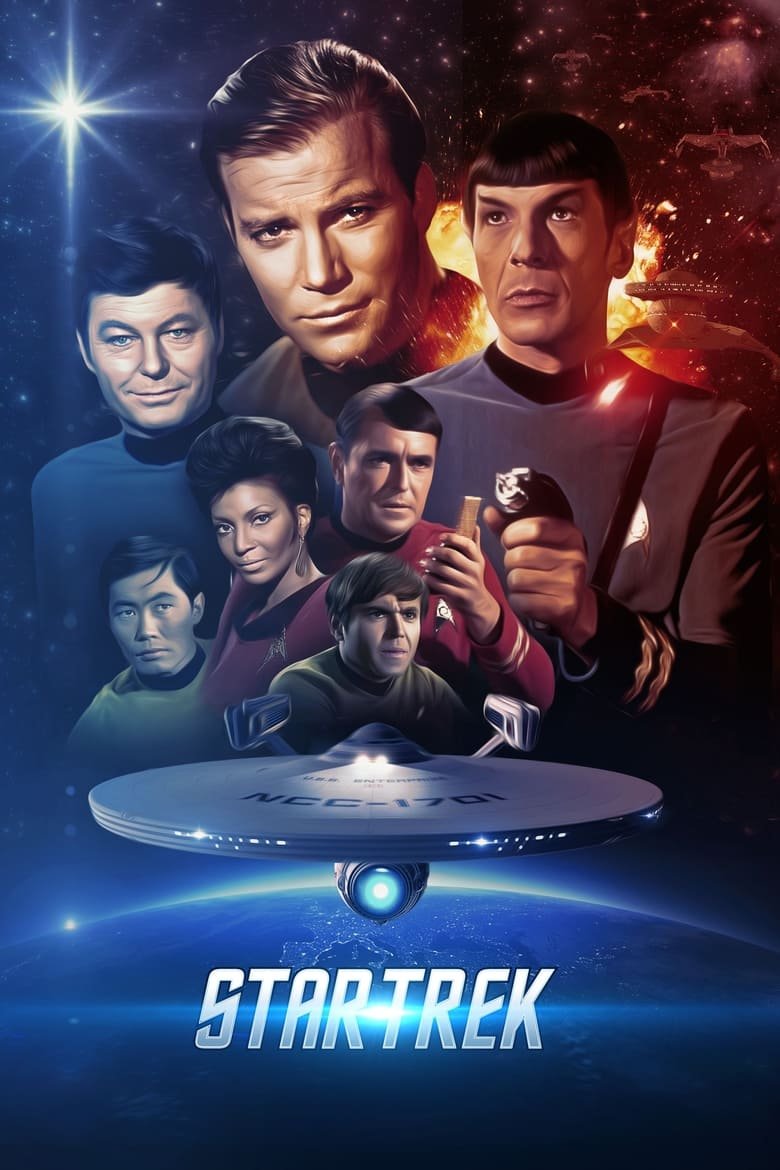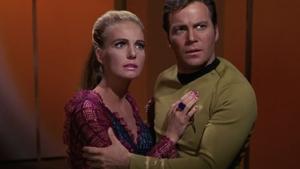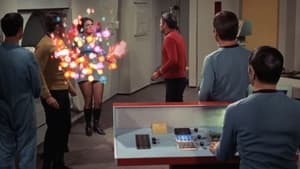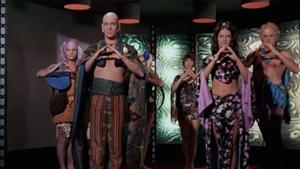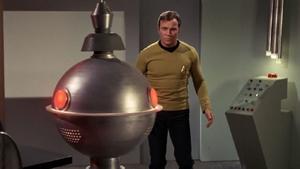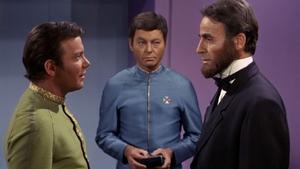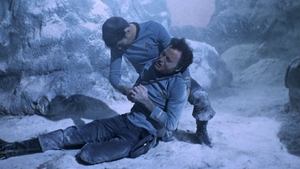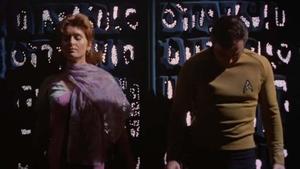"Your world of starship captains doesn't admit women. It isn't fair." – Dr. Janice Lester
There’s a lot to unpack in
Turnabout Intruder, and not just because it's the final broadcast episode of
Star Trek: The Original Series. This one hurts—and not for the reasons the terminally online might clutch their pearls over, but for how much potential it wastes under the weight of clumsy execution and unintentional self-parody.
Let’s address the bat’leth in the room first: yes, the misogyny is loud, clumsy, and very real. You could practically timestamp the exact moment the episode trips over itself—McCoy diagnosing “Janice” with mental instability in a way that feels so gratuitously loaded, it could’ve been written by a cigar-chomping exec yelling, “Make her crazy! Broad wants too much power!” Lines like “jealousy, hatred, and ambition” aimed at Janice-as-Kirk don’t help, especially when framed as inherently feminine flaws. These aren’t just narrative beats; they’re neon signs blinking
WOMEN = EMOTIONAL LIABILITY, which, in 1969, probably passed for subtext.
But here’s the kicker—I
wanted this episode to be good. The premise had everything: a broken system, a woman raging against the machine, and a satirical mirror pointed at a supposedly “progressive” future that isn’t so progressive after all. Lester’s declaration about the exclusion of women from command could’ve opened a floodgate of character-driven, systemic commentary. And for a flicker, you think maybe,
just maybe, the writers are about to say something incisive.
Then they forget all about it.
The “glass ceiling” is dropped like a misfired phaser, and from that moment on, any narrative weight the episode might have carried is replaced by clunky courtroom drama, plot holes, and a parade of unintentional comedy. What could have been a sharp critique of women having to internalize the very systems that oppress them becomes just another campy villain monologue in the body of a man.
What makes this episode so maddening isn’t just the clumsy execution, but how close it comes to actual brilliance before faceplanting into its own contradictions. There are genuine layers of commentary on gendered double standards, especially in how Kirk—trapped in Janice’s body—is treated with immediate suspicion, called delusional, unstable, and paranoid. It’s a cruel, unintended mirror of how women have historically been dismissed for showing conviction or emotion. And it only gets more fascinating when the power dynamic flips: Janice-as-Kirk parrots the same tactics used to silence her, accusing others of disloyalty and erratic behavior. Spock’s line, “She is dangerous only to your authority, sir,” lands like a dagger—Janice has become exactly what she hated, wielding the same systemic dismissal she once resented. And when she mocks the idea of a man being overpowered by a woman, the scene brushes up against modern conversations about how male victims, particularly those inflicted with sexual assault or coercion, are often ridiculed instead of taken seriously. There’s a fascinating thematic undercurrent about power, identity, and performance that
could have rivaled
The Enemy Within or
Mirror, Mirror... if the episode didn’t treat these ideas like afterthoughts. This should’ve been biting satire. Instead, it’s a goldmine of missed opportunities buried under the rubble of ham-fisted writing and tonal whiplash.
And then there’s the Shatner.
Shatner, oh Shatner. If the rest of the cast is paddling through murky character logic, he’s pirouetting through it with full Broadway flair. His "convulsions" are the stuff of interpretive dance legend—equal parts mime routine and electrocuted jazz hands. It’s not
good, but damn if it isn’t entertaining. If this was his curtain call, he made sure to go out with the ham cooked rare.
And that brings us to the most damning (and ironically most modern) takeaway of this whole affair: Janice Lester is the prototype of today’s “strong female lead”—a woman force-fed into a male archetype, written with all the nuance of a wet sock, and propped up not by growth, flaws, or earned competence, but by sheer narrative insistence. Sound familiar? Rey “I fix ships better than Han” Skywalker, CIA Cleaner “I used to be SRR” in
The Cleaner, Viola Davis channeling Kamala Harris with biceps in
G20, or Sabra singlehandedly body-slamming men twice her size like it’s an Olympic sport. These aren’t characters. They’re slogans with stunt choreography.
And that’s what makes
Turnabout Intruder unintentionally prescient. It shows, with almost prophetic clumsiness, how insulting it is to take a woman, slap a man’s script on her, and call it empowerment. It’s not progressive. It’s just lazy. Even actors like Emily Blunt and Michelle Rodriguez have called this out, demanding roles that don’t just repackage Rambo in a ponytail, but explore strength in
actual feminine form—intelligent, strategic, maternal, seductive, compassionate, ruthless
when necessary, but not a copy-paste caricature of masculinity.
So yeah, this episode is sexist. But it’s also a warning label for every boardroom brainstorm that ends with “Let’s just gender-swap the lead and call it a day.”
If nothing else, let this episode serve as a cautionary tale: not just about sidelining women, but about forcing them into roles that were never written for them, and calling it progress.
It isn’t. And that’s the real tragedy.
